- Home
- D. H. Lawrence
The Rainbow (100th Anniversary ed.) Page 4
The Rainbow (100th Anniversary ed.) Read online
Page 4
She was a handsome girl with a bosom, and dark hair and blue eyes, a girl full of easy laughter, flushed from the sun, inclined to wipe her laughing face in a very natural and taking manner.
Brangwen was in a state of wonder. He treated her with his chaffing deference, roused, but very unsure of himself, afraid to death of being too forward, ashamed lest he might be thought backward, mad with desire yet restrained by instinctive regard for women from making any definite approach, feeling all the while that his attitude was ridiculous, and flushing deep with confusion. She, however, became hard and daring as he became confused, it amused her to see him come on.
“When must you get back?” she asked.
“I’m not particular,” he said.
There the conversation again broke down.
Brangwen’s companions were ready to go on.
“Art commin’, Tom,” they called, “or art for stoppin’?”
“Ay, I’m commin’,” he replied, rising reluctantly, an angry sense of futility and disappointment spreading over him.
He met the full, almost taunting look of the girl, and he trembled with unusedness.
“Shall you come an’ have a look at my mare,” he said to her, with his hearty kindliness that was now shaken with trepidation.
“Oh, I should like to,” she said, rising.
And she followed him, his rather sloping shoulders and his cloth riding-gaiters, out of the room. The young men got their own horses out of the stable.
“Can you ride?” Brangwen asked her.
“I should like to if I could—I have never tried,” she said.
“Come then, an’ have a try,” he said.
And he lifted her, he blushing, she laughing, into the saddle.
“I s’ll slip off—it’s not a lady’s saddle,” she cried.
“Hold yer tight,” he said, and he led her out of the hotel gate.
The girl sat very insecurely, clinging fast. He put a hand on her waist, to support her. And he held her closely, he clasped her as an embrace, he was weak with desire as he strode beside her.
The horse walked by the river.
“You want to sit straddle-leg,” he said to her.
“I know I do,” she said.
It was the time of very full skirts. She managed to get astride the horse, quite decently, showing an intent concern for covering her pretty leg.
“It’s a lot better this road,” she said, looking down at him.
“Ay, it is.” he said, feeling the marrow melt in his bones from the look in her eyes. “I dunno why they have that side-saddle business, twistin’ a woman in two.”
“Should us leave you then—you seem to be fixed up there?” called Brangwen’s companions from the road.
He went red with anger.
“Ay—don’t worry,” he called back.
“How long are yer stoppin’?” they asked.
“Not after Christmas,” he said.
And the girl gave a tinkling peal of laughter.
“All right—by-bye!” called his friends.
And they cantered off, leaving him very flushed, trying to be quite normal with the girl. But presently he had gone back to the hotel and given his horse into the charge of an ostler and had gone off with the girl into the woods, not quite knowing where he was or what he was doing. His heart thumped and he thought it the most glorious adventure, and was mad with desire for the girl.
Afterwards he glowed with pleasure. By Jove, but that was something like! He stayed the afternoon with the girl, and wanted to stay the night. She, however, told him this was impossible: her own man would be back by dark, and she must be with him. He, Brangwen, must not let on that there had been anything between them.
She gave him an intimate smile, which made him feel confused and gratified.
He could not tear himself away, though he had promised not to interfere with the girl. He stayed on at the hotel over night. He saw the other fellow at the evening meal: a small, middle-aged man with iron-grey hair and a curious face, like a monkey’s, but interesting, in its way almost beautiful. Brangwen guessed that he was a foreigner. He was in company with another, an Englishman, dry and hard. The four sat at table, two men and two women. Brangwen watched with all his eyes.
He saw how the foreigner treated the women with courteous contempt, as if they were pleasing animals. Brangwen’s girl had put on a ladylike manner, but her voice betrayed her. She wanted to win back her man. When dessert came on, however, the little foreigner turned round from his table and calmly surveyed the room, like one unoccupied. Brangwen marvelled over the cold, animal intelligence of the face. The brown eyes were round, showing all the brown pupil, like a monkey’s, and just calmly looking, perceiving the other person without referring to him at all. They rested on Brangwen. The latter marvelled at the old face turned round on him, looking at him without considering it necessary to know him at all. The eyebrows of the round, perceiving, but unconcerned eyes were rather high up, with slight wrinkles above them, just as a monkey’s had. It was an old, ageless face.
The man was most amazingly a gentleman all the time, an aristocrat. Brangwen stared fascinated. The girl was pushing her crumbs about on the cloth, uneasily, flushed and angry.
As Brangwen sat motionless in the hall afterwards, too much moved and lost to know what to do, the little stranger came up to him with a beautiful smile and manner, offering a cigarette and saying:
“Will you smoke?”
Brangwen never smoked cigarettes, yet he took the one offered, fumbling painfully with thick fingers, blushing to the roots of his hair. Then he looked with his warm blue eyes at the almost sardonic, lidded eyes of the foreigner. The latter sat down beside him, and they began to talk, chiefly of horses.
Brangwen loved the other man for his exquisite graciousness, for his tact and reserve, and for his ageless, monkeylike self-surety. They talked of horses, and of Derbyshire, and of farming. The stranger warmed to the young fellow with real warmth, and Brangwen was excited. He was transported at meeting this odd, middle-aged, dry-skinned man, personally. The talk was pleasant, but that did not matter so much. It was the gracious manner, the fine contact that was all.
They talked a long while together, Brangwen flushing like a girl when the other did not understand his idiom. Then they said goodnight, and shook hands. Again the foreigner bowed and repeated his goodnight.
“Goodnight, and bon voyage.”
Then he turned to the stairs.
Brangwen went up to his room and lay staring out at the stars of the summer night, his whole being in a whirl. What was it all? There was a life so different from what he knew it. What was there outside his knowledge, how much? What was this that he had touched? What was he in this new influence? What did everything mean? Where was life, in that which he knew or all outside him?
He fell asleep, and in the morning had ridden away before any other visitors were awake. He shrank from seeing any of them again, in the morning.
His mind was one big excitement. The girl and the foreigner: he knew neither of their names. Yet they had set fire to the homestead of his nature, and he would be burned out of cover. Of the two experiences, perhaps the meeting with the foreigner was the more significant. But the girl—he had not settled about the girl.
He did not know. He had to leave it there, as it was. He could not sum up his experiences.
The result of these encounters was, that he dreamed day and night, absorbedly, of a voluptuous woman and of the meeting with a small, withered foreigner of ancient breeding. No sooner was his mind free, no sooner had he left his own companions, than he began to imagine an intimacy with fine-textured, subtle-mannered people such as the foreigner at Matlock, and amidst this subtle intimacy was always the satisfaction of a voluptuous woman.
He went about absorbed in the interest and the actuality of t
his dream. His eyes glowed, he walked with his head up, full of the exquisite pleasure of aristocratic subtlety and grace, tormented with the desire for the girl.
Then gradually the glow began to fade, and the cold material of his customary life to show through. He resented it. Was he cheated in his illusion? He balked the mean enclosure of reality, stood stubbornly like a bull at a gate, refusing to re-enter the well-known round of his own life.
He drank more than usual to keep up the glow. But it faded more and more for all that. He set his teeth at the commonplace, to which he would not submit. It resolved itself starkly before him, for all that.
He wanted to marry, to get settled somehow, to get out of the quandary he found himself in. But how? He felt unable to move his limbs. He had seen a little creature caught in bird-lime, and the sight was a nightmare to him. He began to feel mad with the rage of impotency.
He wanted something to get hold of, to pull himself out. But there was nothing. Steadfastly he looked at the young women, to find a one he could marry. But not one of them did he want. And he knew that the idea of a life among such people as the foreigner was ridiculous.
Yet he dreamed of it, and stuck to his dreams, and would not have the reality of Cossethay and Ilkeston. There he sat stubbornly in his corner at the Red Lion, smoking and musing and occasionally lifting his beer-pot, and saying nothing, for all the world like a gorping farm-labourer, as he said himself.
Then a fever of restless anger came upon him. He wanted to go away—right away. He dreamed of foreign parts. But somehow he had no contact with them. And it was a very strong root which held him to the Marsh, to his own house and land.
Then Effie got married, and he was left in the house with only Tilly, the cross-eyed woman-servant who had been with them for fifteen years. He felt things coming to a close. All the time, he had held himself stubbornly resistant to the action of the commonplace unreality which wanted to absorb him. But now he had to do something.
He was by nature temperate. Being sensitive and emotional, his nausea prevented him from drinking too much.
But, in futile anger, with the greatest of determination and apparent good-humour, he began to drink in order to get drunk. “Damn it,” he said to himself, “you must have it one road or another—you can’t hitch your horse to the shadow of a gate-post—if you’ve got legs you’ve got to rise off your backside some time or other.”
So he rose and went down to Ilkeston, rather awkwardly took his place amongst a gang of young bloods, stood drinks to the company, and discovered he could carry it off quite well. He had an idea that everybody in the room was a man after his own heart, that everything was glorious, everything was perfect. When somebody in alarm told him his coat pocket was on fire, he could only beam from a red, blissful face and say “Iss-all-ri-ight—iss-al’-ri-ight—it’s a’ right—let it be, let it be—” and he laughed with pleasure, and was rather indignant that the others should think it unnatural for his coat pocket to burn:—it was the happiest and most natural thing in the world—what?
He went home talking to himself and to the moon, that was very high and small, stumbling at the flashes of moonlight from the puddles at his feet, wondering What the Hanover! then laughing confidently to the moon, assuring her this was first class, this was.
In the morning he woke up and thought about it, and for the first time in his life, knew what it was to feel really acutely irritable, in a misery of real bad temper. After bawling and snarling at Tilly, he took himself off for very shame, to be alone. And looking at the ashen fields and the putty roads, he wondered what in the name of Hell he could do to get out of this prickly sense of disgust and physical repulsion. And he knew that this was the result of his glorious evening.
And his stomach did not want any more brandy. He went doggedly across the fields with his terrier, and looked at everything with a jaundiced eye.
The next evening found him back again in his place at the Red Lion, moderate and decent. There he sat and stubbornly waited for what would happen next.
Did he, or did he not believe that he belonged to this world of Cossethay and Ilkeston? There was nothing in it he wanted. Yet could he ever get out of it? Was there anything in himself that would carry him out of it? Or was he a dunderheaded baby, not man enough to be like the other young fellows who drank a good deal and wenched a little without any question, and were satisfied.
He went on stubbornly for a time. Then the strain became too great for him. A hot, accumulated consciousness was always awake in his chest, his wrists felt swelled and quivering, his mind became full of lustful images, his eyes seemed blood-flushed. He fought with himself furiously to remain normal. He did not seek any woman. He just went on as if he were normal. Till he must either take some action or beat his head against the wall.
Then he went deliberately to Ilkeston, in silence, intent and beaten. He drank to get drunk. He gulped down the brandy, and more brandy, till his face became pale his eyes burning. And still he could not get free. He went to sleep in drunken unconsciousness, woke up at four o’clock in the morning and continued drinking. He would get free. Gradually the tension in him began to relax. He began to feel happy. His riveted silence was unfastened, he began to talk and babble. He was happy and at one with all the world, he was united with all flesh in a hot blood-relationship. So, after three days of incessant brandy-drinking, he had burned out the youth from his blood, he had achieved this kindled state of oneness with all the world, which is the end of youth’s most passionate desire. But he had achieved his satisfaction by obliterating his own individuality, that which it depended on his manhood to preserve and develop.
So he became a bout-drinker, having at intervals these bouts of three or four days of brandy-drinking, when he was drunk for the whole time. He did not think about it. A deep resentment burned in him. He kept aloof from any women, antagonistic.
When he was twenty-eight, a thick-limbed, stiff, fair man with fresh complexion, and blue eyes staring very straight ahead, he was coming one day down from Cossethay with a load of seed out of Nottingham. It was a time when he was getting ready for another bout of drinking, so he stared fixedly before him, watchful yet absorbed, seeing everything and aware of nothing, coiled in himself. It was early in the year.
He walked steadily beside the horse, the load clanked behind as the hill descended steeper. The road curved downhill before him, under banks and hedges, seen only for a few yards ahead.
Slowly turning the curve at the steepest part of the slope, his horse britching between the shafts, he saw a woman approaching. But he was thinking for the moment of the horse.
Then he turned to look at her. She was dressed in black, was apparently rather small and slight, beneath her long black cloak, and she wore a black bonnet. She walked hastily, as if unseeing, her head rather forward. It was her curious, absorbed, flitting motion, as if she were passing unseen by everybody, that first arrested him.
She had heard the cart, and looked up. Her face was pale and clear, she had thick dark eyebrows and a wide mouth, curiously held. He saw her face clearly, as if by a light in the air. He saw her face so distinctly, that he ceased to coil on himself, and was suspended.
“That’s her,” he said involuntarily. As the cart passed by, splashing through the thin mud, she stood back against the bank. Then, as he walked still beside his britching horse, his eyes met hers. He looked quickly away, pressing back his head, a pain of joy running through him. He could not bear to think of anything.
He turned round at the last moment. He saw her bonnet, her shape in the black cloak, the movement as she walked. Then she was gone round the bend.
She had passed by. He felt as if he were walking again in a far world, not Cossethay, a far world, the fragile reality. He went on, quiet, suspended, rarified. He could not bear to think or to speak, nor make any sound or sign, nor change his fixed motion. He could scarcely bear to think of her face
. He moved within the knowledge of her, in the world that was beyond reality.
The feeling that they had exchanged recognition possessed him like a madness, like a torment. How could he be sure, what confirmation had he? The doubt was like a sense of infinite space, a nothingness, annihilating. He kept within his breast the will to surety. They had exchanged recognition.
He walked about in this state for the next few days. And then again like a mist it began to break to let through the common, barren world. He was very gentle with man and beast, but he dreaded the starkness of disillusion cropping through again.
As he was standing with his back to the fire after dinner a few days later, he saw the woman passing. He wanted to know that she knew him, that she was aware. He wanted it said that there was something between them. So he stood anxiously watching, looking at her as she went down the road. He called to Tilly.
“Who might that be?” he asked.
Tilly, the cross-eyed woman of forty, who adored him, ran gladly to the window to look. She was glad when he asked her for anything. She craned her head over the short curtain, the little tight knob of her black hair sticking out pathetically as she bobbed about.
“Oh why”—she lifted her head and peered with her twisted, keen brown eyes—“why, you know who it is—it’s her from th’ vicarage—you know—”
“How do I know, you hen-bird,” he shouted.
Tilly blushed and drew her neck in and looked at him with her squinting, sharp, almost reproachful look.
“Why you do—it’s the new housekeeper.”
“Ay—an’ what by that?”
“Well, an’ what by that?” rejoined the indignant Tilly.
“She’s a woman, isn’t she, housekeeper or no housekeeper? She’s got more to her than that! Who is she—she’s got a name?”
“Well, if she has, I don’t know,” retorted Tilly, not to be badgered by this lad who had grown up into a man.
“What’s her name?” he asked, more gently.

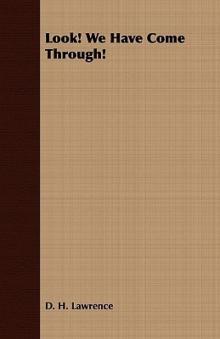 Look! We Have Come Through!
Look! We Have Come Through!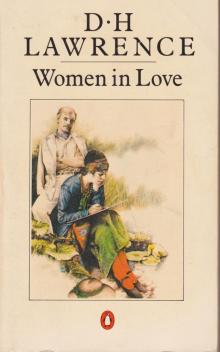 Women in Love
Women in Love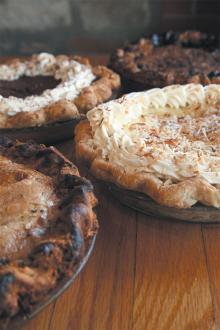 The Ladybird
The Ladybird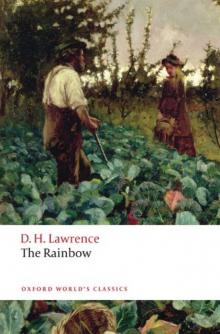 The Rainbow
The Rainbow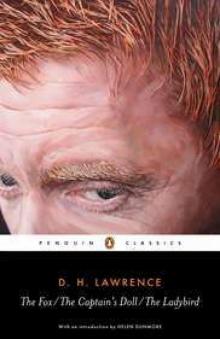 The Captain's Dol
The Captain's Dol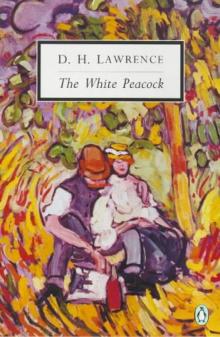 The White Peacock
The White Peacock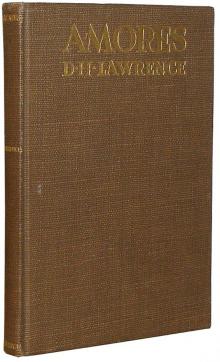 Amores
Amores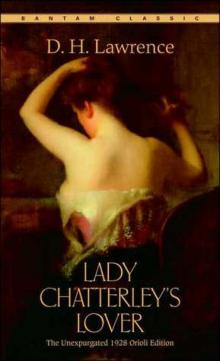 Lady Chatterley's Lover
Lady Chatterley's Lover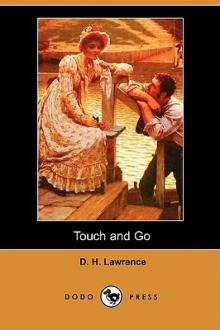 Touch and Go
Touch and Go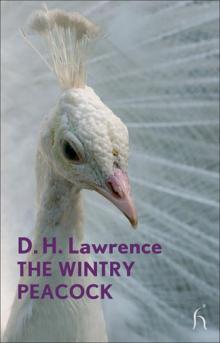 The Wintry Peacock
The Wintry Peacock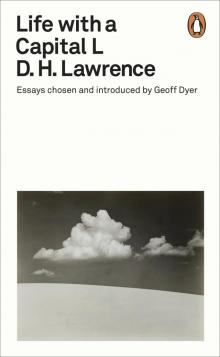 Life with a Capital L
Life with a Capital L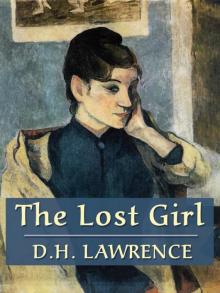 The Lost Girl
The Lost Girl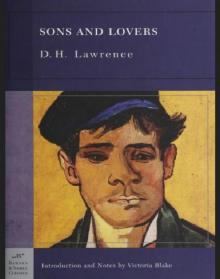 Sons and Lovers
Sons and Lovers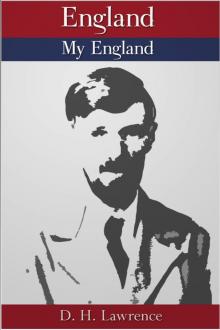 England, My England
England, My England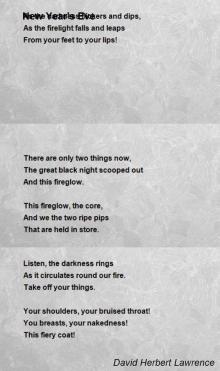 New Poems
New Poems Twilight in Italy
Twilight in Italy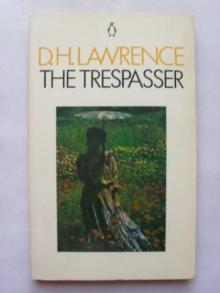 The Trespasser
The Trespasser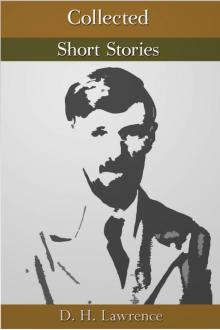 The Collected Short Stories
The Collected Short Stories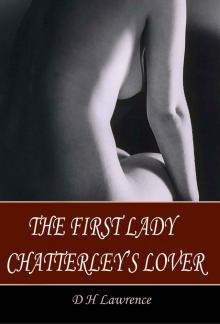 The First Lady Chatterley's Lover
The First Lady Chatterley's Lover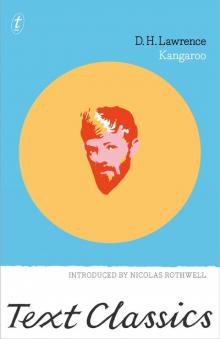 Kangaroo
Kangaroo Bay
Bay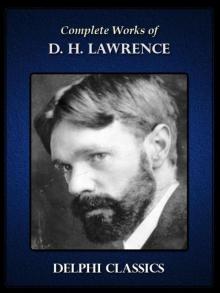 Complete Works of D.H. Lawrence
Complete Works of D.H. Lawrence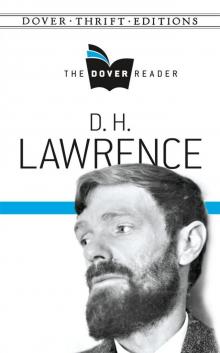 D H Lawrence- The Dover Reader
D H Lawrence- The Dover Reader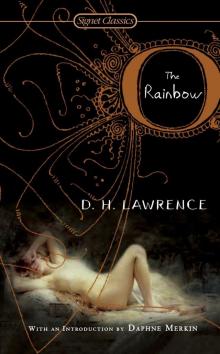 The Rainbow (100th Anniversary ed.)
The Rainbow (100th Anniversary ed.)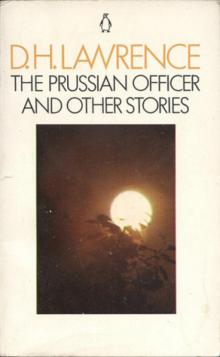 The Prussian Officer
The Prussian Officer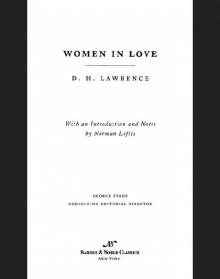 Women in Love (Barnes & Noble Classics Series)
Women in Love (Barnes & Noble Classics Series)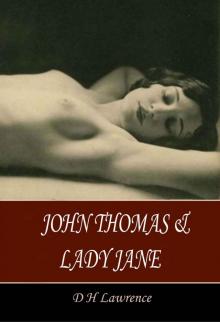 John Thomas and Lady Jane
John Thomas and Lady Jane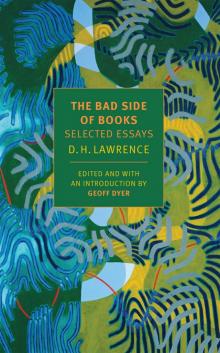 The Bad Side of Books
The Bad Side of Books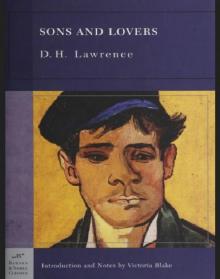 Sons and Lovers (Barnes & Noble Classics Series)
Sons and Lovers (Barnes & Noble Classics Series) Selected Stories
Selected Stories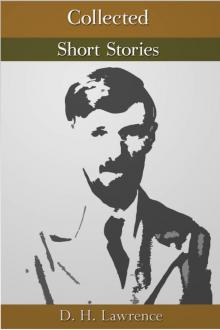 Collected Short Stories
Collected Short Stories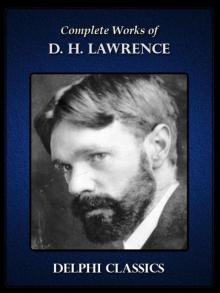 Complete Works of D.H. Lawrence (Illustrated)
Complete Works of D.H. Lawrence (Illustrated)